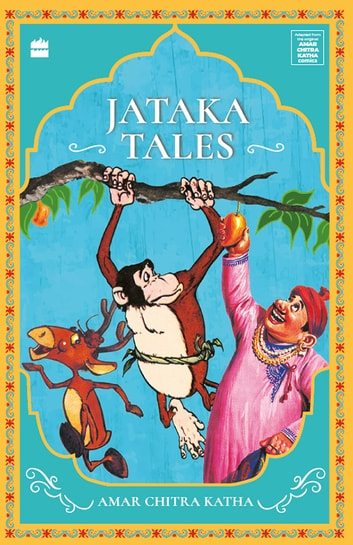As a believer in the margin of safety, I usually land up at the airport a good two hours in advance of the flight, in spite of knowing experientially that our carriers are notoriously tardy with reasons that would put the most creative person to shame. Today is no different. As I make an entry into the Delhi Terminal 1 lounge to relax over coffee, I get a message saying that my 8 pm Indigo flight to Mumbai will be delayed by 2 hours and 5 minutes and leave at 10.05 pm and within ten minutes of that I get a new message saying it will now be delayed further and will now leave at 23.20 pm. This time nature is to blame thanks to a mini thunderstorm in Mumbai and other interiors of Maharashtra. And what else but the conveniently added ‘the flight is delayed due to the delay in the incoming flight’. The storm in the teacup, so to say, lasted for a whole of 10 minutes or so, but was disruptive enough to add hours to the arrival and departures of flights. Of course, it always leaves me wondering how Indigo (all airlines are the same, given the practical duopoly today) can precisely say that the delay is 2 hours and 5 minutes or 3 hours and 20 minutes. I can bet my last buck that it will get delayed by another 77 minutes or whatever. So, I am staring at a red-eye flight, for sure.
For the past hour and a half, I have been patiently sitting and contemplating what to do with the enforced spare time (not extra time to our life; how I wish it can be). A good 40 odd people were on the same flight, waiting in the lounge like I am – some chatting, some gorging food, some staring at the screen, some playing games, some messaging, most in a silent mode with their own companions, kids prancing around, some reading and some plain bored and looking at the ceiling. Deafening silence there was, thanks to the omnipresent smart phones. As an inveterate observer of the stage and actors, I found it all interesting and intriguing. Human behaviour indeed can teach us a lot, for better or worse. You may wonder what I am doing?!
Well, I am flooded with random thoughts and penning them for an article, with the Damocles’ sword of time over my head, of course with a glass from the bar juicing its way to my thumb clicking and clacking away at my mobile key board. Live the moment, one may wont to say. As I posted my thought of the day today morning in Facebook, “You can only spend time, not save it.” To each his own on how and what.
This brings me to the oft asked question, “What’s your purpose in life?.” All of us have had this question thrown at us by all and sundry, making most of us scurry for cover and leaving us confused or overwhelmed. And I dare say none have ever had a lucid answer to that question, including yours truly. A question seemingly pregnant with meaning, but essentially pointing to the existentialist crises of the homo sapiens particularly. Purpose can be variedly defined as an objective or an end to be attained or an intention or a resolution.

My purpose as a child was to play, my purpose as a student was to study, my purpose as a young man was to be gainfully employed and be a productive citizen, my purpose as a married man was to look after my spouse and children, my purpose as an employee was to look after the company and its stakeholders, my purpose as a grown up man was to look after my parents, my purpose as an income earner is to pay taxes, my purpose as a teacher is to impart knowledge, my purpose as a scientist is to discover, my purpose as a businessman is to make profits and provide jobs, my purpose as a geriatric is not to be a burden. Whatever the stage of life, whatever the related purpose at that stage, the underpinning is life and survival. A poor man strives to live, so does a rich man. All their efforts are to live. Living itself is the primary purpose of life, is it not? Of course, and quite evidently, this is not to be confused with standards of living. It is but a distinction between a need and a want.
This leads me to wonder if animals ever think what’s their purpose in life. To you and me, their purpose is to live for the day and care for their brood (that too only up to a point unlike the human beings). They would not know about their relative importance in the food chain or the survival of the fittest. They just survive their lives; whether quadrupeds or centipedes or reptiles or amphibians or mammals or protozoa. They are either the hunters or the hunted, quite simply. Whichever way one wishes to see it, their purpose is to live. If one were to visualise the Jataka tales of the ancient Indian lore, it’s probable that the animal kingdom would think exactly the same of mankind and having a ball discussing us humans in their jungle panchayat.

They would not be off the mark. But the ego of the humans will not accept it. After all, we have the arrogances of the intellect to counter that and find a larger purpose in life to explain our existence. Does a rose think about its purpose or for that matter a sunflower? We may see them as fragrant or beautiful, but do they see themselves that way? As they are, we too are but a cosmic purpose at best, if one were to argue.
“Find purpose, the means will follow” is a lofty quote of the Mahatma, fuelled by the need of the hour for motivation of the masses to get out of the colonial yoke. If one were to vivisect it, and to me at least, he was impelling people to fulfil their responsibility to the nation, notwithstanding the overwhelming power and pelf of the British colonialists. But he had to couch it in inspiring and simple words. Reading in-between those lines, was not life itself the purpose?
A toddler’s purpose is to live, a householder’s purpose is to live, a totterer’s purpose is to live and a dying’s purpose is to live. So is yours and mine. Quite simply, what is Life, if not the Purpose.








